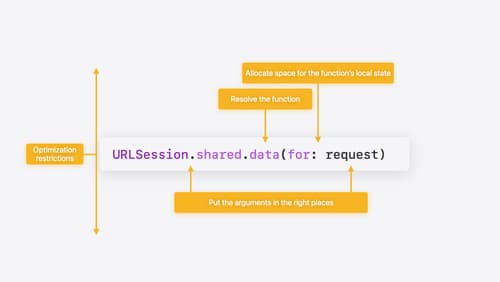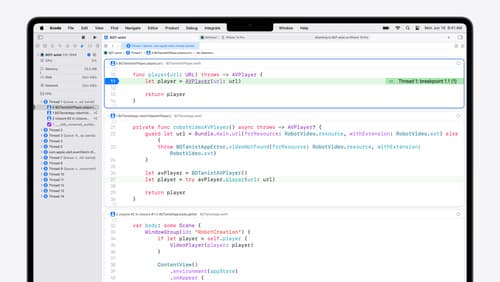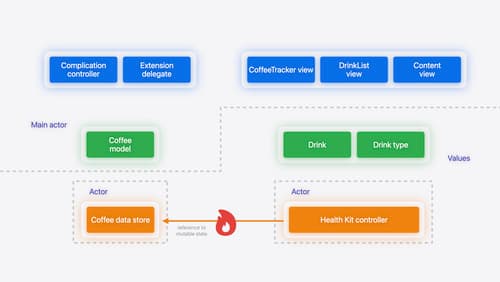Wouldn’t it be better to just learn Rust?
Asked on 2024-08-04
1 search
While learning Rust can be beneficial due to its strong emphasis on safety and performance, Apple has made significant strides in improving Swift's performance and safety features, particularly with the introduction of Swift 6.
At WWDC 2024, several sessions highlighted the advancements in Swift, including:
-
Explore Swift performance: This session delves into the performance characteristics of Swift, emphasizing the importance of understanding how different operations impact performance. Swift provides many tools for abstraction, such as closures and generics, which have non-trivial implementations but are powerful and useful (Explore Swift performance).
-
What’s new in Swift: This session covers new features in Swift, including tools for data race safety and improved language features. It also introduces low-level synchronization primitives like atomics and mutexes, which are essential for safe concurrent access (What’s new in Swift).
-
Migrate your app to Swift 6: This session provides a hands-on tutorial for migrating apps to Swift 6, focusing on enabling data race safety and leveraging concurrency without introducing new bugs. The Swift 6 language mode introduces full enforcement of data isolation, preventing accidental sharing of state between tasks and actors (Migrate your app to Swift 6).
-
What’s new in Xcode 16: This session discusses the new Swift 6 language mode in Xcode 16, which turns data races into compile-time issues, significantly improving code correctness and safety (What’s new in Xcode 16).
-
Platforms State of the Union: This session highlights the new Swift 6 language mode and its benefits, such as compile-time data race safety, which can be adopted incrementally across projects (Platforms State of the Union).
In summary, while Rust is a great language for performance and safety, Swift 6 introduces many features that enhance its safety and performance, making it a strong contender for developing robust and efficient applications.

Explore Swift performance
Discover how Swift balances abstraction and performance. Learn what elements of performance to consider and how the Swift optimizer affects them. Explore the different features of Swift and how they’re implemented to further understand the tradeoffs available that can impact performance.

What’s new in Xcode 16
Discover the latest productivity and performance improvements in Xcode 16. Learn about enhancements to code completion, diagnostics, and Xcode Previews. Find out more about updates in builds and explore improvements in debugging and Instruments.

Migrate your app to Swift 6
Experience Swift 6 migration in action as we update an existing sample app. Learn how to migrate incrementally, module by module, and how the compiler helps you identify code that’s at risk of data races. Discover different techniques for ensuring clear isolation boundaries and eliminating concurrent access to shared mutable state.
